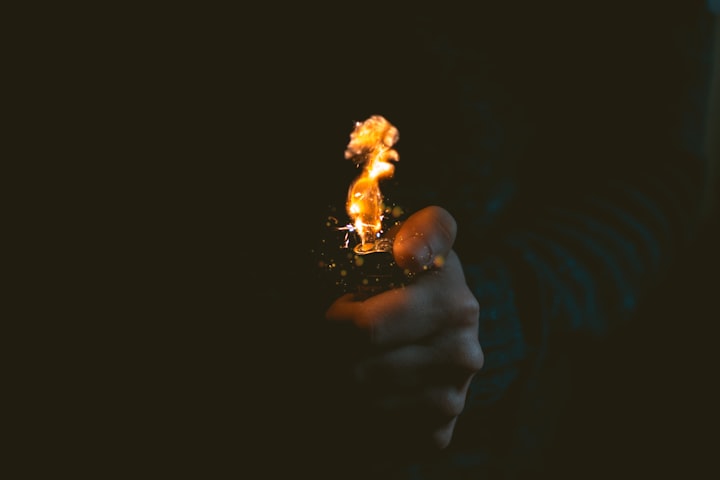The Library of Juaco
Carlos slipped with grace through the landscape; his joints ached, but he knew the trail like a lullaby.
He longed to encounter María at the library, with her dark hair spilling down about her white Guardia shirt and her way of talking in riddles.
All the variety, all the charm, all the beauty of life is made up of light and shadow.
The words moved through him as a memory does and his fingers went at once to the heart-shaped locket that hung tangled in the dark hair of his chest. He massaged the silver between his thumb and forefinger, savoring the aftertaste of the words. They seemed to represent an eternal truth, some universal and forceful good that stretched unbroken from the deep past to the unknowable future.
A generation ago, many women who had conceived in Juaco had given birth to dead babies and the city was deemed unfit for human life. There was not much in Juaco that suggested the city had ever been livable. Most Old World buildings had long crumbled to the earth. Corrugated tin roofing and concrete siding protruded from the ground, and some of the roads were still discernible in short swaths of puckered asphalt.
To be caught trespassing was a crime, but also unlikely. In all his years of scavenging at this site, María was the only Guardia official he’d seen, and she was different.
At the town’s center, brick and rebar gave way to halved pillars of white marble. The sorrow of Juaco was heaviest here, and Carlos could imagine the Motherless Generation, born in jars and raised by machines, who stumbled as grown-up children into the valley and tried to have children of their own, failing again and again until there were few of them left. That was a long time ago. Carlos was among the last of those who remembered the stories told at the mournful hour between dusk and twilight by his grandparents, him and his sisters sprawled together starving on the bare dirt floor with their two surviving cows.
Emerging from his reverie, he discovered at his feet the coarse brown corner of a book. Or half a book. Gently scraping soil from the cover, he could make out in gold letters: La Casa de los Espíritus. The bottom half of the cover was lost to weathering.
“A good find, Don Carlos,” came a soft female’s voice. “Allende was a national treasure.”
Carlos looked up to see María’s small figure, taut with muscle beneath the white Guardia shirt and slacks. Her skin was deeply tanned, the color of dark honey, and with a pang, he noted that her dark, curly hair cascaded down her shoulders and pooled on her breasts.
María had explained nations to Carlos, but he had trouble imagining anything more vast than the Jade Valley, with the high Cordillera to the north and the flat, grey sea to the southwest. On special assignment from the Guardia, so much of her purpose was a formal secret that she was suspicious and disliked by the Jade peasants.
“María, it is good to see you,” Carlos called to her, pushing himself to his feet.
“At ease, my friend,” she laughed, and her laughter was like the Río Aconcagua at low season, sliding smoothly over stones in the riverbed.
“La Casa de los Espíritus''. He showed her, and she approached.
“The House of the Spirits,” she breathed.
He shivered; it was exactly what Juaco was: a place of spirits, a city of the past.
María squatted down beside Carlos and the thick fabric of her pants brushed his calf. She was so close that he could move his hand to brush her cheek with his fingers, but he did not.
“This book was written by a Chilean author of much renown,” María said.
Chilean. Renown. Carlos dared glance up at María’s eyes, which were scouring the intact pages with interest. She looked up and met his gaze, and he felt his heart might fly from his chest.
For thy sweet love remember'd such wealth brings / That then I scorn to change my state with kings.
By instinct, he pulled the locket from under his smock to smooth the metal. María saw the locket and her eyes widened.
“What is that?”
He quickly shoved the locket beneath his smock, as if he’d been caught doing something indecent.
“It is nothing. A family heirloom,” he replied, eyes cast downward.
“Let me see it,” María demanded. Carlos pulled the locket from around his neck and she examined the inscription on the back: WC90763WP0. She tried to open it, but as always, it would not budge.
“How did you come to possess this?” she asked, and in her voice was a thinly veiled excitement that frightened Carlos.
“It was given to me by my mother,” Carlos replied softly. “It has been in my family for a very long time.” He paused briefly. Could he trust María? “It is as if it sings to me, straight into my head, the words of a song I know but have forgotten."
María stared at him. “This locket is very special,” she said at last, returning her gaze to the silver pendant in her palm.
“You know something about my family’s locket?” he asked, incredulous.
She shook her head. “Maybe,” she said. “Will you come home with me? I have something to show you.”
Go home with María? The world had turned upside down in an instant, and the sun had set. María was little more than an outline in the growing dusk. She took his hand and led him north from the wrecked library, the partial copy of the novel tucked under her other arm.
Carlos expected them to trek towards the Old City of Valparaíso, where the Guardia administered. But they had barely hiked ten minutes before María turned off the main trail onto a smaller track that traveled into the mouth of a small side canyon. They switchbacked up a ridge and were suddenly upon an iron fence enclosing a squat compound. María produced a key from her slacks and unlocked a gate that swung forward on shrieking hinges. They padded through a courtyard fringed by palms and María unlocked another door, handsome in the old style.
Carlos felt they had passed into a dream. María touched something on the wall and lights bloomed brilliant and white in the darkness‒electricity! A myth made real in front of his eyes. María opened a white door at the end of the long corridor to reveal a small room. On a table near the wall was a thin box, surface glossy like a mirror, but black and empty. Carlos stared at the foreign object, feeling the gravity of the room warp around it.
“You must be very overwhelmed,” María said warmly, and gestured towards a soft chair. She touched the sleek face of the black box and it sprang to life, glowing as white as the lights in the foyer.
Carlos’s head swam with the night’s log of miracles, but he sank slowly into the chair and gazed at the lighted screen, as mesmerizing as María’s dark eyes.
“This is called a computer,” she said, indicating the glow. “They are exceedingly rare, but the Guardia is working on making more.”
Computer. Carlos nodded, his peasant’s eyes slanted towards the screen.
“The locket you carry around your neck is designed to be read by a computer,” she said, and opened her palm. She wanted the locket. Carlos was suddenly frightened.
“I am hesitant, María,” he admitted. “Why do you show me these things?”
“You will want to see this, trust me,” she replied, and gently squeezed his shoulder.
A measure of his fear dissolved under her gentle touch. He removed the locket and handed it to her, breathing deeply.
María touched an icon on the computer screen and a box flashed on screen; she touched W-C-9-0-7-6-3-W-P-0. As she finished the sequence and tapped again, the silver locket swung open.
In the belly of the locket there was a green, circular board with a tiny metallic disk like an island in its center. María pressed the object to the side of the computer and it vanished into a slot. The machine hummed and another window danced to the foreground, with text in English at the top: World Literature Archive Project.
Carlos gaped, but María sat back and crossed her arms. She has seen this before, he realized. He read on: In light of recent global instability, the World Culture Forum, in partnership with the United Nations, has compiled the world’s largest database of written texts‒over 200 million. With special emphasis on works judged to be the most significant contributions to the canon of global thought‒the “great conversation”‒each digital library is contained on a small hard drive. 500 million archive copies were produced and distributed by lottery to nations around the world in an effort to preserve our human literary tradition in perpetuity and empower the common man with the knowledge of ages.
He stopped and glanced at María, who was watching him with interest.
“To think, all of your life, you carried with you all of the Old World’s most beautiful ideas around your neck,” she whispered.
Carlos read the text again, and then a third time. “You mean to tell me,” he began, “that I can have access to many books through this device?”
María laughed. “All of the books‒all the greatest things ever written down. Look.”
She tapped a query into another box on the screen‒“The Divine Comedy”‒and the screen changed to show a picture of a novel.
“I could print this for you,” she said. “You could learn about heaven and hell. You could read all the classics, know all the great minds of the past.”
“But what’s the point? Once you know all that was lost, you cannot think of anything else. It drives you mad. That is the burden of the Guardia.” She paused, sighing deeply. “You are like a child, unmoored from the knowledge of ages by time and ruin. The lockets have failed.”
“But María,” he cried, “I do know these things‒loss, freedom, desire, and the rest. I feel them.” He tried to take her hand and she flinched away from him. “I know love,” he said, meeting her dark gaze with his earnest eyes.
She tipped her head back and laughed. “No! You do not know love, and you do not know me.”
Carlos flushed scarlet with shame and sat on his hands to keep them from trembling. There was silence now as María seemed to regain her composure.
“I will go and print you a book, and you can begin to understand what was lost,” she said, the sweetness returning to her voice. “Sit tight.”
She passed from the room, her honeyed hair flowing like a ghost behind her.
Carlos sat, feeling the world had been stripped from him rather than opened up to him. He thought of the fragments of stories he’d read from years spent combing the library wreckage, each one a clue to his ancestry in the Old World and so his place in the New World.
He sat enclosed in this thought for a long time, until the door at the end of the room opened. Instead of María, however, two towering men in white Guardia robes strode quickly across the threshold and grabbed his arms, pulling him to his feet and forcing him down the corridor and into the chill night air of the courtyard.
“María! María!” he screamed, craning his neck back into the darkness. But she did not appear. One of the Guardia men produced a black hood, which he pulled over Carlos’s head. The other drew a knife with a long crescent blade, and slit Carlos’s throat. His body landed gently in the courtyard grass.
I go to seek a Great Perhaps.
Then he could no longer hear the great conversation.
About the Creator
Kela Fetters
Consistently floored by nature facts







Comments
There are no comments for this story
Be the first to respond and start the conversation.